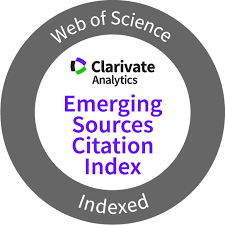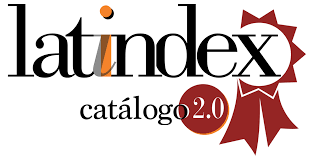The organization of sporting events in Spain after the emergence of covid-19: the case of national and regional Federations
DOI:
https://doi.org/10.5783/revrrpp.v13i25.813Keywords:
events, national and autonomic, sports, Covid-19, EspañaAbstract
The impact of Covid-19 worldwide is no longer in doubt. A global pandemic as never before experienced with consequences in all sectors of all countries. Not only the economy, tourism, transport, health or education, but also, for example, public activities such as sports. In the case of Spain, we are talking about an industry, sports in all its aspects that, in 2018, generated the equivalent of 3.3% of the Spanish GDP and in 2020 accused losses of 4600 million euros and a fall in revenue of 38% according to the Report presented by the Spanish Superior Sports Council in June 2020. How national and regional sports federations handled this situation from a sporting, communicative and media point of view is one of the objectives of this research.
For this purpose, we chose a mixed methodology combining interview and questionnaire to ask large (with more than 70,000 members), medium (between 10,000 and 70,000) and small (up to 10,000 members) federations how they dealt with this changing situation in which, after the total closure of venues and cancellation of events, the legislative and regulatory landscape changed week by week depending on the pandemic and the place in the peninsula where we were. In addition, the reality, means and resources were not the same for national and regional federations.
The use of social networks, the online broadcasting of content or the planning and development of streaming events through social networks, the holding of virtual or mixed championships through multisport platforms that were beginning to consolidate in Spain received a definitive boost, as well as the development of e-sports, "the cybersports world came to stay and evolve and a good example of this was the Tokyo Olympic Games, followed worldwide on television, even for the locals" (Galindo Cáceres, 2022). The federations had to relocate and change the way of communicating with their members, even in some cases hiring personnel to manage the networks, facing the loss of sponsorship and aid from different entities and the pressure from the media requesting content to fill their spaces, given that the suspension of championships left many "empty hours" in the sports spaces of the major media.
Both national and regional federations confirmed that the legislation was too restrictive when it came to developing tournaments or championships, although the classification of high or low risk sports activities, depending on the possibility of contagion between athletes depending on the physical contact between them being greater or lesser, made it possible for some federations to continue developing activities only in person, such as the Royal Galician Archery Federation. The prioritization of tournaments in certain categories, the priority use of Facebook, Twiter and Youtube as communication channels and the forecast that the return to normality will bring full presentiality back to the fields and training areas are some of the results that we can find in this work.
Downloads
References
Abigail A. y Razo Y. (2021). El uso de las TIC en el entrenamiento deportivo: una propuesta operativa ante la COVID-19. Podium. Revista de Ciencia y Tecnología en la Cultura Física, 16(1), 76-87.
Archila Contreras, L., Porto Rojas, D. y Guerrero Fandiño, G. (2021). Desarrollo de un sistema de información para la gestión de eventos deportivos. [Proyecto Final de Pregrado de Ingeniería de sistemas, Universidad del Norte]. https://manglar.uninorte.edu.co/handle/10584/9894
Bustard, J.R.T., Bolan, P., Devine, A. y Hutchinson, K. (2019). The emerging smart event experience: an interpretative phenomenological análisis. Tourism Review, 74(1), 116-128. https://doi.org/10.1108/TR-10-2017-0156
Celuch, K. (2021). Event technology for potential sustainable practices: a bibliometric review and research agenda. International Journal of Event and Festival Management, 12(3), 314-330. https://doi.org/10.1108/IJEFM-08-2020-0051
Consejo Superior de Deportes (2020a). Resumen General 2020. Ministerio de Cultura y Deporte. Gobierno de España. https://www.csd.gob.es/sites/default/files/media/files/2022-07/v1.%20Resumen%20General%202020.pdf
Consejo Superior de Deportes (2020b). Memoria 2020. Actividades Deportivas Federativas 2020. Ministerio de Cultura y Deporte. Gobierno de España. https://www.csd.gob.es/sites/default/files/media/files/2021-07/Actividades%20Deportivas%202020.pdf
Consejo Superior de Deportes (2021). Memoria 2021. Actividades Deportivas Federativas 2021. Ministerio de Cultura y Deporte. Gobierno de España. https://www.csd.gob.es/sites/default/files/media/files/2022-07/v4.%20Actividades%20Deportivas%202021.pdf
Consejo Superior de Deportes (2022a). Federaciones deportivas y asociaciones. Federaciones Deportivas. Ministerio de Cultura y Deporte. Gobierno de España. https://www.csd.gob.es/test.php/es/Federaciones-y-asociaciones/Federaciones-deportivas-espanolas/Federaciones-espanolas
Consejo Superior de Deportes (2022b). Federaciones deportivas españolas. Ministerio de Cultura y Deporte. Gobierno de España. https://www.csd.gob.es/es/Federaciones-y-asociaciones/Federaciones-deportivas-espanolas
El Consejo de ministros autoriza la convocatoria de ayudas a las Federaciones deportivas españolas por valor de 53 millones de euros (23 de marzo de 2021). Ministerio de Cultura y Deporte. Gobierno de España. https://www.culturaydeporte.gob.es/actualidad/2021/03/210323-ayudas-Federaciones-deportivas.html#:~:text=El%20Consejo%20de%20Ministros%2C%20a%20propuesta%20del%20ministro,euros%20que%20gestionar%C3%A1%20el%20Consejo%20Superior%20de%20Deportes.
El Consejo de ministros prueba un presupuesto plurianual para las Federaciones Deportivas de 187 millones (31 de mayo de 2022). Ministerio de Cultura y Deporte. https://www.culturaydeporte.gob.es/actualidad/2022/05/220531-cmin-Federaciones.html
La Covid 19 impacta en el deporte con pérdidas de 4.600 millones y una caída de ingresos del 38% (22 de junio del 2020). Runnersworld.com. https://www.runnersworld.com/es/noticias-running/a32932197/covid-impacto-economico-deporte-espanol/
Crawford, G., Fenton, A., Chadwick, S. y Lawrence, S. (2021). ‘All Avatars Aren't We’: Football and the experience of football-themed digital content during a global pandemic. International Review for the Sociology of Sport, 57(4).https://doi.org/10.1177/10126902211021529
Galindo Cáceres, J. (2010). Ingeniería en Comunicación Social del deporte. Revista Luciérnaga Audiovisual, 2 (4).
Eiró-Gomes, M. y Nunes, T. (2018). Comunicación en las Federaciones deportivas en Portugal: ¿dónde estamos? Redmarka. Revista de Marketing Aplicado, 01 (022), 65-88. https://doi.org/10.17979/redma.2018.01.022.4935
Estanyol, E., Fernández-Souto, A. B., y Vázquez-Gestal, M. (2023). Transformation and communication in sports events in the context of COVID-19. Managing Sport and Leisure, 1-20. https://doi.org/10.1080/23750472.2023.2200417
Fernández-Souto, A. B., Vázquez-Gestal, M. y Puentes-Rivera, I. (2019). Gestión comunicativa de los clubes de fútbol: Análisis de los departamentos de comunicación de La Liga. Revista Latina de Comunicación Social, 74, 1071-1093. http://10.4185/RLCS-2019-1372
Fernández-Souto, A. B. y Balonas, S. (2021). La creatividad en la organización de eventos en la era Covid. Sphera Publica, 2(21), 121-146. https://sphera.ucam.edu/index.php/sphera-01/article/view/426
Fernández-Souto, A. B., Perona-Páez, J.J., Barbeito-Veloso, M., y Valderrama-Santomé, M. (2022). La comunicación on line de las Federaciones Deportivas Españolas: web corporativa y RRSS desde la aparición de la Covid-19. Retos: nuevas tendencias en educación física, deporte y recreación, (46), 996-1003. http://dx.doi.org/10.47197/retos.v46.93753
El gasto en deporte se hunde a mínimos históricos en el año del Covid-19. (30 junio de 2021). Palco 23. https://www.palco23.com/entorno/el-gasto-en-deporte-se-hunde-a-minimos-historicos-en-el-ano-del-covid-19-hasta-solo-66-euros-por-persona
Gratton, C., Dobson, N y Shibli, S. (2000). La importancia económica de los grandes eventos deportivos: un estudio de caso de seis eventos. Gestión del ocio, 5 (1), 17-28
Jiménez Gutiérrez, A., Mayo Mauritz, X., Gutiérrez de León-Sotelo, A., Manca Díaz, P. y Esteve, J. (2020). Termómetro del ecosistema del deporte en España. Fundación España Activa. http://espanaactiva.es/wp-content/uploads/2020/11/Informe_Term%C3%B3metro_Deporte_en_Espa%C3%B1a-1.pdf
Jiménez Gutiérrez, A., Mayo Mauriz, X., López Valenciano, A. y Ardanuy Pizarro, M. (2020). Estudio de Evaluación del Impacto de la pandemia del COVID-19 sobre el Ecosistema del Deporte en España. Fundación España Activa. https://www.urjc.es/images/Noticias/Noticias/2020/Informe_estudio_FEA_ADESP_CSD_impacto_covid19.pdf
Jiménez Gutiérrez, A., Mayo Mauritz, X., Hubbard, E., Cheeseman, S. y Mann, S. (2022). Informe Preliminar sobre el Impacto Social y Económico del sector de la actividad física y el deporte en España. Fundación España Activa http://espanaactiva.es/wp-content/uploads/2022/06/Informe-preliminar-sobre-el-Impacto-Social-y-Econ%C3%B3mico-del-sector-de-la-actividad-f%C3%ADsica-y-el-deporte-en-Espa%C3%B1a-7-6-22FINAL_compressed_compressed.pdf.
Lee Ludvigsen, J. A. (2021). When ‘the show’cannot go on: An investigation into sports mega-events and responses during the pandemic crisis. International Review for the Sociology of Sport. https://doi.org/10.1117/10126902211020169
Marín Montín, J. (2021). Adaptaciones en la realización televisiva del deporte en directo por la COVID-19. Index. comunicación: Revista científica en el ámbito de la Comunicación Aplicada, 11(1), 141-162.
Martín Muñoz, D. y Pedrero Esteban, L. M. (2021). La eclosión de los e-sports como fenómeno deportivo y mediático durante la pandemia de la covid-19. En Puebla Martínez, B. y Venader Segura, R. (cood), Ecosistema de una pandemia: COVID 19, la transformación mundial (pp. 587-603). Dykinson SL.
Más ingresos y mayores gastos: el año de las federaciones deportivas en España (28 de marzo de 2022). Palco 23. https://www.palco23.com/competiciones/mas-ingresos-y-mayores-gastos-el-ano-de-las-Federaciones-deportivas-en-espana
Muñiz Domínguez, P. y Vilchis Vélez, Ú. (2020). Las implicaciones legales, sociales y económicas del COVID-19 en el deporte. Revista Académica de la Facultad de Derecho, 18(35), 123-134. https://repositorio.lasalle.mx/bitstream/handle/lasalle/1692/RA%2035_jul2020-123-134.pdf?sequence=1&isAllowed=y
Padilla Bustamante, G. y Zapata Maquilón, A. (2020). Manejo comunicacional de las Federaciones ecuatorianas deportivas [Tesis de Maestría, Repositorio Digital Universidad Laica Vicente Rocafuerte de Guayaquil]. http://repositorio.ulvr.edu.ec/handle/44000/3965
Parnell, D., Widdop, P., Bond, A., y Wilson, R. (2020). COVID-19, networks and sport. Managing Sport and Leisure, 1-7. https://doi.org/10.1080/23750472.2020.1750100
Plan de Recuperación, Transformación y Resiliencia (2020). Vicepresidencia. Gobierno de España. https://portal.mineco.gob.es/RecursosArticulo/mineco/ministerio/ficheros/plan_de_recuperacion.pdf
Posso Pacheco, R., Marcillo Ñacato, J. y Bedón Noboa, E. (2021). Las tecnologías de la Información y comunicación como alternativa para el entrenamiento en la pandemia. Revista Científica Olimpia, 18 (2), 1090-1100.
Ránking de Federaciones deportivas con más licencias federativas en España en 2021 (14 de octubre de 2022). Statista Rechearch Department. https://es.statista.com/estadisticas/1051888/ranking-de-Federaciones-con-mas-deportistas-federados-espana/
Reade, J. J., y Singleton, C. (2021). Demand for public events in the COVID-19 pandemic: a case study of European football. European Sport Management Quarterly, 21(3), 391-405. https://doi.org/10.1080/16184742.2020.1841261
Real Decreto 1835/ 1991, de 20 de diciembre, sobre Federaciones Deportivas Españolas. Boletín Oficial del Estado, n. 312, de 30 de diciembre de 1991, pp. 41820 - 41826. https://www.boe.es/eli/es/rd/1991/12/20/1835
Rodríguez López, A.y del Arco Juan, F. J. (2014). Organización y funcionamiento de las Federaciones deportivas españolas. Revista Aranzadi de Derecho de Deporte y Entretenimiento, 42, 113-135.
Santisteban Montejo, B. (2021). Marketing deportivo: efectos de la COVID-19 en el deporte. [Trabajo Académico, Repositorio Abierto de la Universidad de Cantabria]. http://hdl.handle.net/10902/21269
Sato, S., Oshimi, D., Bizen, Y., & Saito, R. (2022). The COVID-19 outbreak and public perceptions of sport events in Japan. Managing Sport and Leisure, 27(1-2), 140-145. https://doi.org/10.1080/23750472.2020.1773301
Sierra-Caballero, F. (2020). Genealogía de la cultura de masas. Crítica de la información como dominio: El caso del deporte como espectáculo. IC Revista Científica de Información y Comunicación, 17, 167-188.
TYC SPORTS. 2020. Coronavirus: España y su protocolo sanitario para la vuelta del fútbol. https://www.tycsports.com/laliga/coronavirus-espana-y-su-protocolo-sanitario-para-la-vuelta-del-futbol20200503.html
Van Winkle, C. y Bueddefeld, J. (2020). Information and communication technology in event management. Handbook of e-Tourism, 1, 1-22.
Vega Torres, P. y Astier-Courriére, E .R. J. (2021). El Deporte como sector económico. Las particularidades de la gestión empresarial en las empresas deportivas. Repositorio Universidad Pontificia de Comillas. https://repositorio.comillas.edu/jspui/handle/11531/46733
Westmattelmann, D., Grotenhermen, J. G., Sprenger, M. y Schewe, G. (2021). The show must go on-virtualisation of sport events during the COVID-19 pandemic. European Journal of Information Systems, 30(2), 119-136. https://doi.org/10.1080/0960085X.2020.1850186
Wilson, R. (2006). El impacto económico de los eventos deportivos locales: ¿significativo, limitado o no? Un estudio de caso de cuatro eventos de natación. Gestión del ocio, 11 (1), 57-70.
Downloads
Published
How to Cite
Issue
Section
License
Copyright (c) 2023 Ana Belén Fernández, Montse Vázquez Gestal, Elisenda Estanyol

This work is licensed under a Creative Commons Attribution-NonCommercial-NoDerivatives 4.0 International License.
Authors publishing in this journal agree to the following terms:
a. Authors retain copyright and grant the journal the right to be the first publication of the work as licensed under a Creative Commons Attribution License that allows others to share the work with an acknowledgement of authorship of the work and initial publication in this journal.
b. Authors may separately enter into additional arrangements for non-exclusive distribution of the version of the work published in the journal (e.g., placing it in an institutional repository or publishing it in a book), with an acknowledgement of initial publication in this journal.
c. Authors are allowed and encouraged to disseminate their work electronically (e.g. in institutional repositories or on their own website) before and during the submission process, as it can lead to productive exchanges, as well as earlier and higher citation of published work (see The Effect of Open Access).





